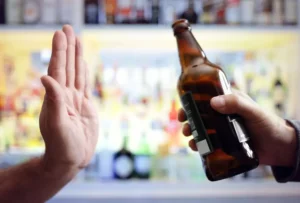
Grapefruit’s bioactive components include primarily furanocoumarins, which have been shown to inhibit CYP3A4 and CYP2C9 activities irreversibly 8. As these enzymes are involved in the metabolism of warfarin, grapefruit products have been reported to interact with this anticoagulant drug at pharmacokinetic level. These findings provide evidence for health care providers and patients to be watchful of the potential harmful interactions between warfarin and grapefruit. The effect of grapefruit on other blood-thinning compounds (e.g., NSAIDs) has not been reported, but, unless proven otherwise, the possibility of such interactions with these drugs cannot be ruled out.
Can alcohol cause blood clots?
Antiplatelets are medications that target the activation and aggregation of platelets. They are commonly used in the treatment and prevention of stroke and heart attacks. Activated platelets attract other platelets, and they stick to each other to plug up the wound and stop the bleeding. In the coagulation cascade, damaged tissue sets off a cascade of events that activates several proteins in the blood, called clotting factors. These proteins are activated through a series of steps that, ultimately, activates fibrin.

Surprising Foods & Drinks That Impact Blood Thinning Medications
«Coagulation» is a term used to describe the process of blood cells known as platelets sticking together. When a person experiences an injury, those platelets travel to the area to form together into a blood clot to stop the bleeding. It’s advisable to avoid heavy and binge drinking while taking Eliquis, as it can increase the risk of bleeding.

Drug and Alcohol Addiction

Gain insights into the likelihood of recurrence and acquire valuable prevention strategies to proactively safeguard your heart health and maintain optimal well-being throughout your beer and blood thinners wellness journey. You can drink coffee while taking Eliquis, as there are no specific interactions between caffeine and the medication. It’s important to follow your doctor’s guidance and monitor any potential effects. If you take an anticoagulant like warfarin, you’ll need regular blood tests so your doctor can adjust your levels if needed. Ask them about other steps you should take to stay safe while you’re on this medication.
What Happens When You Drink Alcohol and Blood Thinners?
- The heart benefits and reduction of the rate of coronary heart disease (CHD) from alcohol are thought to impact men who are over 40 and women who are post-menopausal most often.
- However, an isolated case of enhanced bleeding in a patient taking warfarin with chamomile has not been reported 48.
- In addition, no information is available on interactions between oregano and drugs interfering with blood clotting.
- Below are popular herbal supplements used in the USA that are reported to act by such pharmacological mechanisms.
- Depending upon specific circumstances, even greater utilization of these products has been observed among the elderly and medically compromised individuals 15–18.
Additionally, the interaction of blood thinners with other medications, foods high in vitamin K, and certain herbal supplements can alter their effectiveness, necessitating careful dietary and medicinal management. Patients on warfarin, a common blood thinner, are often advised to maintain a consistent intake of vitamin K to prevent fluctuations in medication efficacy. Bleeding caused by these products can also be a nuisance during minor surgical procedures. Red clover (Trifolium pratense) is one of the top 15 herbal supplements we previously reported to be used by adult dental patients 7. It has been widely claimed to alleviate the symptoms of menopause and to treat drug addiction skin conditions and respiratory problems, among other conditions 26, 27. As a dietary supplement, tablets, capsules, tea bags, and liquid extracts of the herb are available.

Talking to Your Doctor
For men, this means no more than two drinks per day, and for women, no more than one drink per day. However, individuals on blood thinners should consult with their healthcare provider to determine if these general guidelines are safe for their specific medical situation. If you have been prescribed a blood thinner, it’s important to pay attention to signs of bleeding, like red or black colored stool, severe headache, light-headedness, and fainting.
- A person should also speak with a doctor or access online support if they have concerns that they or someone they know may have AUD.
- It’s best to avoid mixing alcohol and blood thinners due to the risk of stomach irritation and increased bleeding.
- The process of blood clotting is very complex, with multiple chains of chemical reactions called the “clotting cascade” that must occur to develop a blood clot.
- Ask them about other steps you should take to stay safe while you’re on this medication.
- By educating/instructing patients appropriately, potential adverse consequences of herbs can be prevented or minimized.
Some herbal products have been reported to possess both antiplatelet and anticoagulant effects, with the possibility of causing increased bleeding by both mechanisms (Figs. 1 and 2). Below are popular herbal supplements used in the USA that are reported to act by such pharmacological mechanisms. Herbal medications come from various types of plant sources that are used for prevention and/or treatment of diseases and other medical conditions. Records show that natural plant products have been employed throughout human history for therapeutic purposes, in most cases as a major form of therapy for millions of people worldwide. In many parts of the world, medicinal plant substances are recognized as herbal supplements and/or traditional medicines. However, products made from plant derivatives as purified chemical ingredients and subjected to scrutiny by official regulatory mechanisms are not considered as either herbal supplements or traditional medicines 1.
While moderate alcohol consumption can potentially increase the effectiveness of Eliquis, it can also heighten the risk of bleeding. Therefore, it is generally recommended to limit alcohol intake while on this medication. Additionally, informing your healthcare provider about all the medications and supplements you’re taking is vital for safe and effective treatment. Remember, when it comes to your health, it’s better to be safe than sorry.
- Blood thinners are medicines that help keep you from forming blood clots as easily, which keeps your blood flowing smoothly through your veins and arteries.
- In fact, combining blood thinners with alcohol, especially in heavy or regular drinkers, can lead to internal bleeding due to their synergistic effects.
- Therefore, individuals on blood thinners are advised to avoid excessive alcohol intake and to always seek medical advice regarding their alcohol consumption.
- This increased risk may be due to changes in the blood vessels and blood flow in the brain following the fall, as well as other physiological changes that can occur after a brain injury.
Blood thinners are anticoagulation medications that treat and prevent blood clots. Blood clots are semi-solid clumps of red blood cells, platelets, fibrin (a type of protein), and other proteins. The term “holiday heart syndrome” has been coined to describe the occurrence of atrial fibrillation episodes after periods of heavy drinking, such as during holidays or weekends. However, it’s not only binge drinking that poses a risk; even moderate, daily consumption has been linked to an increased likelihood of developing atrial fibrillation over time. Eliquis, a pharmaceutical medication with the active ingredient apixaban, is an important medication for many patients. It’s used to prevent serious blood clots related to conditions like atrial fibrillation or complications following post-surgical procedures such as hip replacements.
ΚΟΙΝΟΠΟΙΗΣΤΕ
